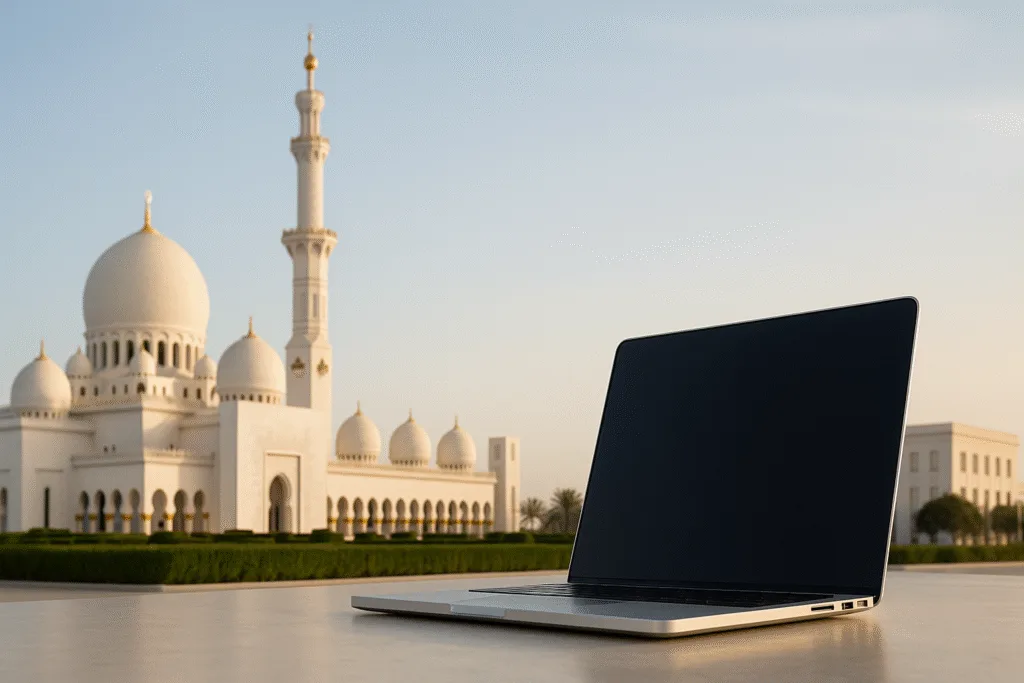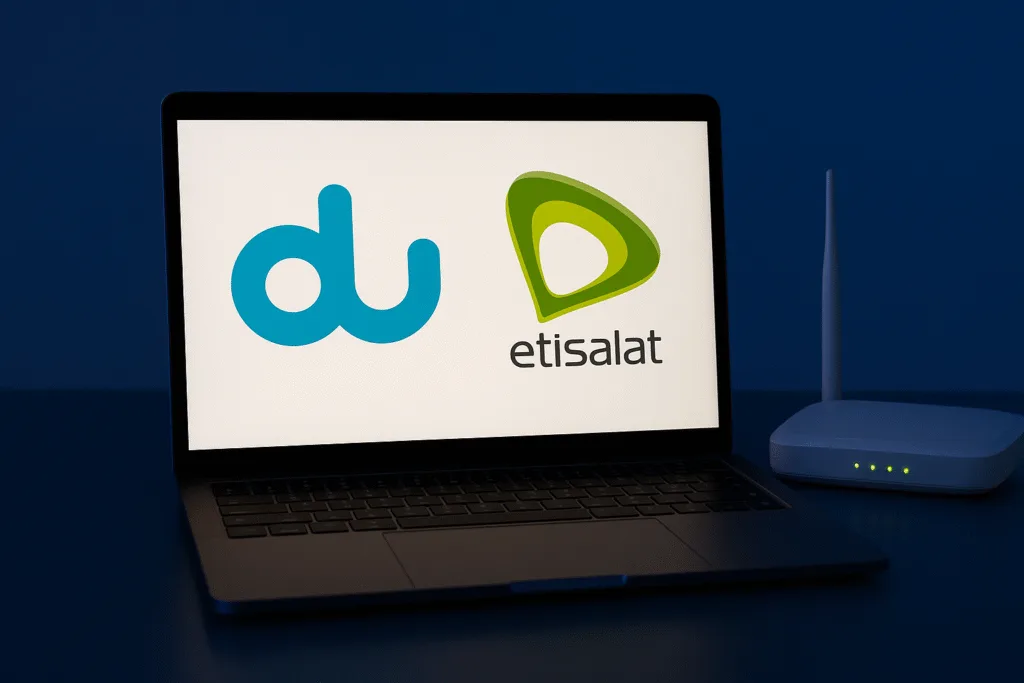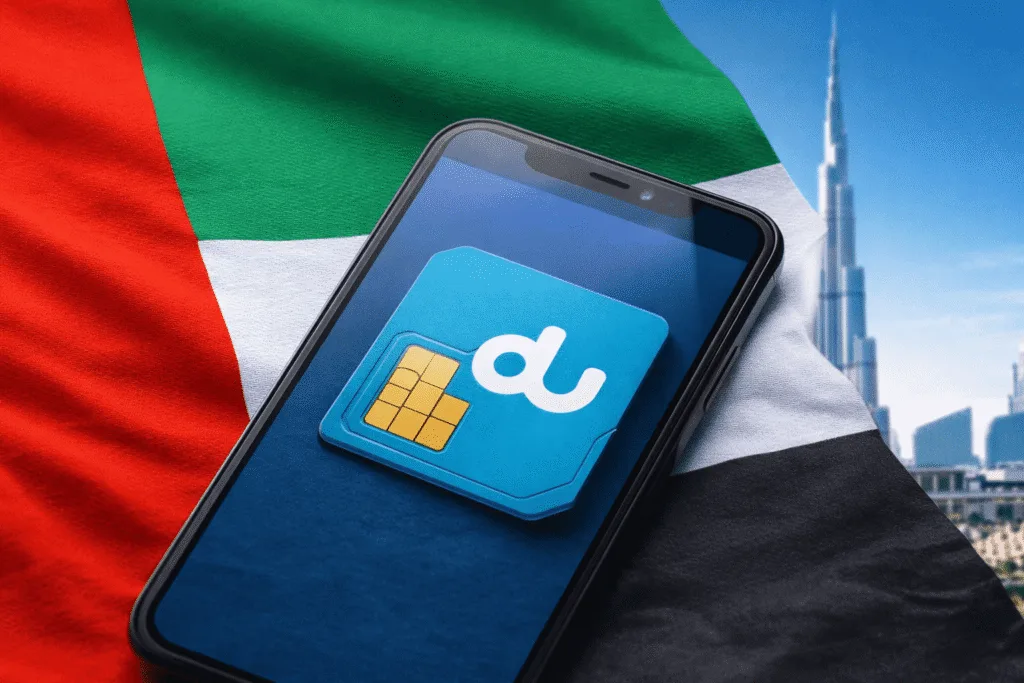Moving to a new country is both exciting and challenging. As someone who’s helped thousands of expatriates settle comfortably in the Emirates, I can tell you that understanding the foundations of living in UAE guide resources is crucial for a smooth transition. Whether you’re relocating for work, family, or lifestyle reasons, this comprehensive UAE living guide for new residents 2025 will help you navigate the essential services, government procedures, and cultural considerations to make your new life in the UAE as seamless and rewarding as possible.
Living in UAE Guide: Everything New Residents Need in 2025
The United Arab Emirates continues to attract global talent with its tax-free income, modern infrastructure, and strategic location. This living in UAE guide addresses the most critical aspects of settling in the Emirates, from securing accommodation to setting up utilities and accessing healthcare services. Let’s break down what you need to know as you prepare for your move in 2025.
Pre-Arrival Preparations: Setting Yourself Up for Success
Before boarding your flight to the UAE, several preparations can save you time and stress upon arrival. These preliminary steps form the foundation of your UAE expat living experience.
Essential Documentation for New UAE Residents
Having the right paperwork ready is your first step toward a smooth transition when following a living in UAE guide.
- Valid passport with at least 6 months validity
- Original employment contract (for work visa holders)
- Educational certificates (attested by UAE Embassy in your home country)
- Marriage certificate (attested) if bringing family
- Birth certificates for children (attested)
- Driving license from home country (for conversion)
- Medical records for pre-existing conditions
Pro tip: Create digital copies of all documents and store them in cloud storage for easy access during the various application processes you’ll encounter during your first months.
Understanding Visa Requirements
The UAE resident services related to visa processing have been streamlined in recent years, but still require careful attention to detail.
| Visa Type | Duration | Eligibility | Processing Time | 2025 Cost (AED) |
|---|---|---|---|---|
| Employment Visa | 2-3 years | Job offer from UAE company | 2-3 weeks | 3,000-5,000 |
| Investor Visa | 5-10 years | Business ownership/investment | 3-4 weeks | 6,500-10,000 |
| Family Sponsorship | Matches sponsor | Sponsored by resident earning 10,000+ AED monthly | 2-3 weeks | 2,000-3,500 per dependent |
| Golden Visa | 10 years | Special talents, researchers, entrepreneurs | 4-6 weeks | 7,000-12,000 |
| Retirement Visa | 5 years | 55+ years, financial criteria | 2-3 weeks | 3,500-5,000 |
As of 2025, the UAE has introduced several new visa categories aimed at remote workers, freelancers, and digital nomads, making the living in UAE guide information increasingly relevant for non-traditional employment structures.
Check out our blog for more in depth information on UAE Visa Guide.
Housing and Accommodation: Finding Your New Home
Securing suitable housing is often the most significant decision in your UAE expat living journey. The Emirates offers diverse residential options across various price points.
Popular Residential Areas by Emirate
Each emirate has distinctive neighborhoods catering to different lifestyles and budgets:
Dubai
- Family-Friendly: Arabian Ranches, The Springs, Mirdif
- Urban Professional: Downtown Dubai, Dubai Marina, JLT
- Budget-Conscious: Al Qusais, International City, Dubai Silicon Oasis
- Luxury Living: Palm Jumeirah, Emirates Hills, Jumeirah Beach Residence
Abu Dhabi
- Family-Friendly: Khalifa City, Mohamed bin Zayed City
- Urban Professional: Al Reem Island, Al Bateen
- Budget-Conscious: Mussafah, Al Shahama
- Luxury Living: Saadiyat Island, Al Raha Beach, Yas Island
Sharjah
- Family-Friendly: Al Nahda, Muwaileh
- Budget-Conscious: Al Qasimia, Abu Shagara
Now that you understand the residential landscape, let’s explore the rental process that forms an essential part of any comprehensive living in UAE guide.
The Rental Process: What to Expect in 2025
The rental market in the UAE has evolved significantly, with 2025 bringing new regulations to protect both tenants and landlords:
- Property Search: Use reputable platforms like Property Finder, Bayut, or Dubizzle, or work with registered real estate agencies (look for RERA registration in Dubai)
- Viewing and Selection: Always visit properties in person and during different times of day
- Negotiation: Most rental terms are negotiable, including price, number of cheques, and maintenance responsibilities
- Documentation: Prepare your Emirates ID, passport copy, visa copy, and employment confirmation
- Contract Signing: Review all terms carefully before signing; contracts are typically for 12 months
- Payment: The standard is 1-4 cheques annually, though more flexible payment options are emerging in 2025
- Registration: In Dubai, all contracts must be registered with Ejari; in Abu Dhabi, with Tawtheeq
| Rental Cost Category | Dubai (AED/year) | Abu Dhabi (AED/year) | Sharjah (AED/year) | RAK/Fujairah (AED/year) |
|---|---|---|---|---|
| Studio | 25,000-45,000 | 22,000-40,000 | 15,000-25,000 | 12,000-20,000 |
| 1 Bedroom | 35,000-70,000 | 30,000-60,000 | 20,000-35,000 | 18,000-30,000 |
| 2 Bedroom | 50,000-100,000 | 45,000-90,000 | 25,000-45,000 | 22,000-40,000 |
| 3 Bedroom | 70,000-150,000 | 60,000-130,000 | 35,000-65,000 | 30,000-55,000 |
| Villa | 90,000-350,000+ | 80,000-300,000+ | 60,000-150,000 | 50,000-120,000 |
Industry insight: The 2025 rental market shows increased competitiveness in newer developments, particularly in Dubai South and Abu Dhabi’s Yas Island, where supply is catching up with demand. Consider these areas for better value.
Setting Up Utilities: Your Essential Service Connections
Once your housing is secured, establishing your UAE utilities setup is the next critical step in your living in UAE guide checklist. The process has become more streamlined in 2025, with greater digital integration.
Electricity and Water Services
Utility services are managed by different authorities depending on your emirate:
- Dubai: Dubai Electricity and Water Authority (DEWA)
- Abu Dhabi: Abu Dhabi Distribution Company (ADDC)
- Sharjah: Sharjah Electricity and Water Authority (SEWA)
- Ajman: FEWA (Federal Electricity and Water Authority)
- RAK, Fujairah, UAQ: FEWA (Federal Electricity and Water Authority)
For a smooth UAE utilities setup, you’ll need:
- Tenancy contract (Ejari or Tawtheeq registration)
- Emirates ID or passport copy
- Security deposit (refundable when you disconnect service)
Pro tip: Most utility authorities now offer comprehensive mobile apps for account creation, bill payment, and consumption monitoring. Download these as soon as you arrive to streamline your UAE utilities setup process.
Internet, TV, and Telecommunications
The telecommunications landscape is dominated by two main providers, with a third entrant changing the market dynamics in 2025:
| Provider | Basic Package (AED/month) | Mid-Range Package (AED/month) | Premium Package (AED/month) | Setup Fee (AED) |
|---|---|---|---|---|
| Etisalat by e& | 299 (12Mbps) | 389 (250Mbps) | 999 (1Gbps) | 200-1,000 |
| du | 269 (10Mbps) | 379 (250Mbps) | 949 (1Gbps) | 200-1,000 |
| Virgin Mobile UAE | Mobile-only plans starting at 79 | Mobile + Home Internet bundles from 350 | Premium bundles from 750 | 100-500 |
Also read our article on how to cancel du and etisalat internet subscription
For a comprehensive UAE utilities setup, consider these telecommunications tips:
- Most providers require a minimum one-year commitment for home services
- Installation typically takes 3-5 working days
- VoIP services like Skype remain restricted, but Zoom, Microsoft Teams, and Google Meet are permitted for business use
- UAE-approved calling apps include BOTIM and C’ME
With your home utilities established, let’s move to another critical aspect of the living in UAE guide – securing your essential identification documents.
Essential Identification: Emirates ID and Government Services
The Emirates ID is your most important identification document and the gateway to accessing UAE resident services. The Federal Authority for Identity, Citizenship, Customs and Port Security (ICP) manages this process.
Emirates ID Application Process
In 2025, the Emirates ID application has become more efficient:
- Schedule appointment through the ICP website or smart application
- Complete the online application form
- Pay the fees (AED 370 for 2-year validity, AED 570 for 5-year validity for residents)
- Visit the service center for biometrics (fingerprints and photograph)
- Receive your digital ID immediately, with physical card delivery within 7-10 working days
For new residents following the living in UAE guide, the Emirates ID application is typically part of your residence visa process, often handled by your employer or sponsor. However, understanding the individual steps is important.
Digital Government Services
The UAE has made remarkable strides in digital government services. Here are the essential platforms for UAE resident services you should know about:
- UAE PASS: The national digital identity system allowing access to over 5,000 government services through a single login
- Smart Dubai App: All Dubai government services in one platform
- TAMM (Abu Dhabi): One-stop shop for Abu Dhabi government services
- Federal Authority for Identity and Citizenship (ICP) App: For visa-related services
Industry insight: The UAE government’s digital transformation accelerated significantly post-pandemic, making the living in UAE guide experience increasingly paperless. By 2025, over 95% of government services are accessible digitally, with many operating 24/7.
Banking and Financial Services: Managing Your Money
Setting up your financial infrastructure is a critical component of your UAE expat living experience. The UAE banking sector offers a range of options for different needs.
Opening a Bank Account
The banking landscape in the UAE includes local banks and international institutions. For new residents, the account opening process typically requires:
- Emirates ID or passport with valid residence visa
- Proof of address (tenancy contract or utility bill)
- Salary certificate or employment contract
- Minimum opening deposit (varies by bank and account type)
| Bank Type | Advantages | Minimum Balance Requirement | Monthly Fees (if below minimum) | Mobile Banking Features |
|---|---|---|---|---|
| Traditional Banks (Emirates NBD, ADCB, FAB) | Extensive branch/ATM network, comprehensive services | AED 3,000-5,000 | AED 25-50 | Full-featured, including bill payments, transfers |
| Islamic Banks (DIB, ADIB) | Sharia-compliant products, profit-sharing accounts | AED 3,000-5,000 | AED 25-50 | Full-featured, including Islamic finance tools |
| International Banks (HSBC, Citibank) | Global access, international transfers, multi-currency accounts | AED 5,000-20,000 | AED 50-150 | Global platform integration |
| Digital Banks (NEO, CBD NOW) | No physical branches, lower fees, quick setup | AED 0-1,000 | AED 0-25 | Digital-first experience, instant account opening |
Pro tip: By 2025, digital-only banks have gained significant market share due to their convenience and lower fees. Consider these options if you’re comfortable with app-based banking and don’t need frequent cash deposits.
Currency and Payment Methods
The local currency is the UAE Dirham (AED), which is pegged to the US Dollar at a rate of 3.6725 AED per USD. This stable exchange rate makes financial planning easier for expatriates.
Payment methods in the UAE have evolved significantly, with 2025 seeing widespread adoption of:
- Contactless cards (NFC) accepted virtually everywhere
- Mobile payment platforms like Apple Pay, Google Pay, and Samsung Pay
- UAE-specific digital wallets including e& money, NOL Pay, and Careem Pay
- Cryptocurrency payments accepted at select retailers (primarily in Dubai)
With your financial foundation established, another essential aspect of the living in UAE guide is understanding healthcare access and insurance requirements.
Healthcare and Insurance: Protecting Your Wellbeing
The UAE offers world-class healthcare facilities, but understanding the system and securing appropriate insurance coverage is vital for UAE expat living.
Health Insurance Requirements
Health insurance is mandatory for all residents, with requirements varying by emirate:
- Dubai: Employers must provide health insurance for employees (DHA-compliant); sponsors must cover dependents
- Abu Dhabi: Employers must provide Thiqa-compliant insurance for employees; sponsors must cover dependents
- Other Emirates: Insurance requirements becoming standardized under federal regulations in 2025
| Insurance Type | Coverage Level | Annual Premium Range (AED) | Suitable For |
|---|---|---|---|
| Basic (DHA/Thiqa Compliant) | Essential coverage, government clinics, limited network | 1,000-2,500 | Low-wage workers, budget-conscious individuals |
| Enhanced Basic | Wider network, higher coverage limits | 2,500-5,000 | Mid-level employees, young professionals |
| Comprehensive | Premium hospitals, dental, vision, wider coverage | 5,000-12,000 | Families, management-level employees |
| Premium International | Global coverage, highest limits, all specialties | 12,000-30,000+ | Executives, those requiring specialized care |
For those focusing on UAE resident services related to healthcare, it’s worth noting that many employers provide health insurance as part of their benefits package. However, it’s important to understand your coverage limits and consider supplementary insurance if necessary.
Accessing Healthcare Services
The UAE healthcare system includes government facilities, private hospitals and clinics, and specialized centers of excellence:
- Public Hospitals: Affordable options with UAE health card; may have longer waiting times
- Private Hospitals: Extensive networks including Cleveland Clinic Abu Dhabi, Mediclinic, Saudi German Hospital
- Specialized Healthcare Cities: Dubai Healthcare City and Sharjah Healthcare City house multiple specialty providers
- Primary Care Clinics: Neighborhood clinics for routine care and referrals
Pro tip: The UAE has implemented a unified electronic medical record system in 2025, allowing seamless sharing of your medical information between healthcare providers. Ensure you register for this system upon receiving your Emirates ID.
Transportation and Mobility: Getting Around
Transportation infrastructure is a highlight of UAE expat living, with multiple options available across the emirates.
Public Transportation Network
The UAE public transportation network continues to expand in 2025:
- Dubai Metro: Red and Green lines covering major business and residential areas, with the new Blue Line operational in 2025
- Dubai Tram: Connecting Dubai Marina, JBR, and adjacent neighborhoods
- Abu Dhabi Bus Network: Comprehensive coverage with dedicated bus lanes
- Intercity Buses: Connecting major emirates with comfortable, affordable service
- Etihad Rail: Phase 2 operational in 2025, connecting Abu Dhabi to Dubai and the Northern Emirates
For regular users, the unified NOL card (Dubai) or Hafilat card (Abu Dhabi) offers reduced fares and convenient transfers between transit modes.
Driving and Vehicle Registration
Many expatriates choose to drive in the UAE. Here’s what you need to know for your living in UAE guide regarding driving:
- License Requirements:
- Residents from 36 approved countries can directly convert their home license
- Other nationalities must take UAE driving lessons and tests
- International Driving Permit valid for tourists only
- Vehicle Purchase:
- New car dealerships offer warranty and service packages
- Used car market accessible through platforms like Dubizzle, Cars24, and Al Futtaim Automall
- Leasing options available through rental companies and dealerships
- Vehicle Registration:
- Annual registration through RTA (Dubai) or equivalent in other emirates
- Requires passing technical inspection, insurance certificate
- Registration fees based on vehicle value (approximately 2.5-5% of value)
With transportation sorted, let’s explore another essential aspect of the UAE living guide for new residents 2025 – education options for families.
Education and Schools: Options for Families
For families, education is often a primary consideration when relocating. The UAE offers diverse educational options catering to various curricula, budgets, and pedagogical approaches.
School System Overview
The UAE’s education landscape includes:
- Public Schools: Primarily for UAE nationals, Arabic-medium instruction
- Private International Schools: Offering various curricula including British, American, IB, Indian, French, German
- Hybrid Schools: Blending online and in-person learning, increasingly popular in 2025
- Specialized Academies: Focus on STEM, arts, sports, or entrepreneurship
| Curriculum | Annual Fees Range (AED) | Notable Schools | Features |
|---|---|---|---|
| British (GCSE/A-Levels) | 35,000-100,000+ | GEMS Wellington, Dubai College, Brighton College | Focus on breadth of subjects, external examinations |
| American | 40,000-90,000+ | American School of Dubai, GEMS Dubai American Academy | Credit-based system, AP/SAT preparation |
| International Baccalaureate | 45,000-110,000+ | Repton, GEMS World Academy, Dubai International Academy | Inquiry-based learning, global perspective |
| Indian (CBSE/ICSE) | 12,000-45,000 | Delhi Private School, GEMS Modern Academy, Our Own English High School | Strong academic focus, competitive environment |
| French/German/Other European | 35,000-90,000 | Lycée Français, Deutsche Internationale Schule | Native language instruction, cultural immersion |
Pro tip: School applications should begin 6-12 months before your planned move to the UAE, especially for top-tier schools which often have waiting lists. Many schools in 2025 offer virtual tours and interviews to accommodate families relocating from abroad.
Higher Education and Professional Development
The UAE has established itself as a regional education hub with branch campuses of prestigious international universities and strong local institutions:
- University Options: NYU Abu Dhabi, Sorbonne Abu Dhabi, American University of Sharjah, BITS Pilani Dubai
- Professional Certifications: KHDA-approved training centers for industry certifications
- Executive Education: INSEAD, London Business School, and SP Jain offer executive programs
- Continued Learning: Platforms like Coursera and edX recognized by UAE employers
Now that we’ve covered the fundamental aspects of UAE expat living, let’s explore the cultural and lifestyle considerations that will enhance your experience.
Cultural Understanding and Etiquette
The UAE blends traditional Islamic values with cosmopolitan influences. Understanding and respecting local customs is an important part of any comprehensive living in UAE guide.
Social Customs and Etiquette
For new residents, these cultural considerations are important:
- Dress Code: Modest dress is appreciated in public places; shoulders and knees should be covered in government buildings and malls
- Ramadan Etiquette: Avoid eating, drinking, or smoking in public during daylight hours
- Public Behavior: Public displays of affection should be minimal; profanity can result in legal consequences
- Photography: Seek permission before photograph



